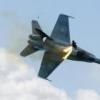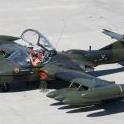Leaderboard
Popular Content
Showing content with the highest reputation on 07/15/2012 in all areas
-
By recognizing them as shit sandwiches. Right now we lie to ourselves that "every assignment is a good assignment." This is not true. It wouldn't be rocket science to keep track of guys who got an assignment that wasn't even close to anything on their ADP, then let them cut to the front of the line a few VMLs down the road. Morale would be a lot higher in my community if the UAV shit sandwich came with a nice slice of "back to a real airplane" pie afterward.2 points
-
Rainman, your professional success was very influential in my search for a career outside of airline flying. I was looking for a job similar to how you describe yours. So, with my USAFA diploma, MBA (sorry, U of AZ is the best program I do while teaching at the FTU), MA in International Relations (albeit, an online degree from Norwich), and ATP, I spent a year applying online, attending job fairs, and talking to recruiters for jobs that sound either similar to yours or entail a leadership development program (re: GE's JOLP). Short of earning an MBA at HBS or Wharton, attending WIC and retiring as an O-6, I think I've prepared well for leaving Active Duty. So, here's what I found: 1. Degrees mean nothing without experience. "You have an MBA? That's nice, but have you ever interned, done finance, used this-or-that analysis tool, or worked at a for-profit business?" I challenge anyone to "translate" those OPR bullets and proj-o experiences into something legitimately relevant to what you'll be expected to do in a $100-$120K entry position. Woe to the guy that "translates" well but can't actually do the job. 2. You are expected to work 60 hours a week (unless you work government contracts) . You are employed to make money for the shareholders. You will commute. You will take work home with you. You will travel (something I want to do). You will be away from your family (something I don't want to do). You will "PCS" (something I'm tired of doing). 3. Guard/Reserve flying is really not practical/compatible with anything besides airline pilot. Companies are very military friendly. Some companies, like Raytheon, even continue to pay your salary while you're deployed! But they also expect you to be at work. While I know a few that manage non-flying careers with Guard flying, it's tough. Either work or flying (or both) will suffer. Accenture and a few other DC-area firms seem cool with letting you off from work to fly, but I think a lot of that is having an understanding/cool boss. 4. The non-flying careers that are realistically attainable don't pass the "make me want to get out of bed" test. I would love to be a lawyer. However, at 35 with a young family, I'm not going to stop earning a livable income for three years in order to attend law school, then try to find a six-figure job where I'm not working 60 hours a week. However, after retiring from the ANG/AFRC, a part-time law program is compatible with an airline career. 5. All good jobs require networking. If networking isn't possible, then you need luck. There are thousands of equally qualified people all competing for the good jobs. IMO, "fighter pilot" is a conversation piece, not a golden ticket to six-figure employment. 6. Don't spin your wheels during the job hunt-find traction. Just as successful companies do, align your talents, skills, and core competencies with corporate objectives. Professional flying is, IMO, the "best fit" of my skills and business objectives of a corporation. 7. Luck and timing are everything. Being at the "right" career fair, sitting next to the "right" connection on an 2-hour flight, etc... is all luck. On the airline side of that coin, I know that the post-9/11 furloughs killed a lot of airline careers. Hopefully this predicted hiring wave will yield better luck. I'm surprised by all the airline skeptics. There are career opportunities for Air Force pilots besides airline flying, but I think some of the accounts given on this board are very unique. The reality is, to earn a comparable living outside of flying you have to learn a new skill, take an entry-level job (pay cut), or be prepared to work very hard doing something more related to your current additional duty than flying airplanes. Rainman, please tell us what you actually do for a living and how you got there.1 point
-
1 point
-
Do what the civilian world does when they need to send employees to Afghanistan...pay them $250,000 for a year of work and let them come home for two weeks every four months. I'm certain you'd see more volunteers if there were improved incentives.1 point
-
Hand down my favorite was My Secret War...A-1 driver tells his story of Vietnam. Misty by Don Sheppard Flying Through Midnight by John T. Halliday War for the Hell of It by Ed Cobleigh When Thunder Rolled by Ed Rasimus Place Cobra by Ed Rasimus Bury us Upside Down by Don Sheppard Rupert Red Two by Jack Broughton (goes from post WWII P-47 pilot to Vietnam flying F-105s) Chickenhawk by Robert Mason A Lonely Kind of War by Marshall Harrison One Hundred Feet over Hell by Jim Hooper My Secret War by Richard S. Drury (Start here!) For Korea, I haven't read it but I have heard Officers in Flight Suits is a good book.1 point
-
1 point
-
If you have your dependents/family on your orders, then I stand corrected,... and provisions should be made for them.1 point
-
Yawn. The impending pilot shortage that's been looming for 35 years and never come to fruition.1 point
-
1 point
-
I can't speak to all of the legalities of the UK. For the country we were going to be residing in, they would allow my spouse to get a resident visa once we arrived. We just needed to take a trip to the capital city and fill out the paperwork at their immigration office. Tricare standard covers family members overseas that don't have command sponsorship at the local base. Healthcare is available, but you may have to pay up front depending on the location. Tricare will reimburse you. Info available on the tricare webpage. The one thing I found that was sketchy was that without command sponsorship your family members can't be med evac'd. So, if they get injured in a bad accident or get sick and need to get back to the states you'll have to foot 100% of that cost.1 point
-
Another thing to consider is that if the dependant is not command sponsored, they are not eligible for a dependant visa. What this means is that, while for all practical purposes, the non sponsored dependant will be able to enter and exit the UK on a "tourist visa", they technically and legally will be an "illegal immigrant". . If the passport agent is in a bad mood or a jerk, they can deny you entry if you don't have a means of exiting, normally in the form of a return ticket. For example, the non sponsored dependant will probably not be able to buy a one way airline ticket or a round trip ticket which terminates in the UK. While you may luck out and get into the UK, if you ever leave, say for example to go to the continent for the weekend, you may be denied entry back into the UK. Worst case, they could get deported back to the US from that port of entry. Having been through UK passport control several of times and just like any other type of law enforcement, you see varying levels of actual enforcement of this rule. When my parents visited, they got through the Heathrow passport control with no problem without having to show anything and got the standard 6 month tourist visa stamp. However, when we went through the passport control at the Calais Ferry terminal, the UK Border agent made us furnish evidence of their return plane ticket (we had the e-ticket confirmation email so if was no big deal) before they let them board the ferry. Additionally, on the tourist visa stamp it says something like "no recourse to public funds". I have had no experience with the NHS since I go on base for medical treatment but this condition may limit the types of services you could receive at the hospital. Obviously if you get your arm chopped off and you are bleeding out, they will patch you up. While there is some sort of agreement between the NHS and Tricare since I know of a few people who have been treated off base with ailments outside the scope of the base hospital, I don't know if they apply to a non-command sponsored dependant since they are not "supposed" to be there. Lastly, when my wife applied for a job she had to show that she was allowed to legally be in the country. So this could come up later if the non sponsored dependant tries to find work. Certainly, they could get by Heathrow passport control with no issues, but the winters here are depressing enough without the prospect of never being able to travel and not being able to find a job.1 point
-
1 point









